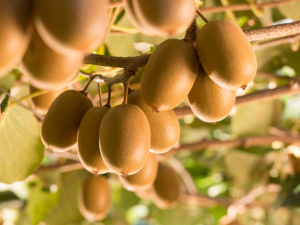NZ Kiwifruit Growers Inc (NZKGI) chief executive Colin Bond says it cost the small advocacy organisation most of its retained earnings.
“The doubt that has been cast on our industry over the last several years has had serious consequences on the well-being of our growers as well as creating financial uncertainty across the industry.
“Orchard prices have dropped significantly throughout the assessment, which will be partially attributable to the risk felt by investors. The reassessment would have no doubt inhibited growth at a time when export earnings are critical for our national economy.
“An independent economic report commissioned by NZKGI found that if Hi-Cane was in fact banned, it would have a significant impact on New Zealand’s economy, including Māori growers and their whānau and communities.
“These concerns were voiced clearly by growers at the hearing on the reassessment.”
NZKGI claims the initial reason that the EPA wanted a reassessment and proposed a phase out of hydrogen cyanamide was due to human health concerns.
“Based on overseas information, the EPA were concerned that the chemical had carcinogenic properties. However, evidence provided to, and accepted by the EPA, has shown that this is not the case. Despite these findings, the EPA continued with its reassessment and proposed a phase out of the chemical, albeit over a longer period than initially recommended, due to concerns that Hi- Cane is harmful to birds and some soil organisms.
“However, expert reports stated that the EPA’s risk assessments relating to birds and soil organisms were overly conservative and this is backed up by grower observations.”
The EPA says Hi-Cane is widely used in the kiwifruit industry to help buds form by simulating the effects of frost. It is also applied to some apple, cherry, apricot, and kiwiberry crops.
Products containing hydrogen cyanamide are restricted to commercial use and can only be used by trained professionals who must follow strict rules when spraying.
The rule changes include further restrictions to the way hydrogen cyanamide products are used, how much can be sprayed, and the need for buffer zones when spraying crops.
New Rules
Changes to the hydrogen cyanamide approval by EPA include:
- One application can be made per year with a maximum rate for kiwifruit, and all other crops.
- Spray buffer zones must be created by bystanders, the aquatic environment and non-target plants downwind.
- Application is limited to ground-based methods and nozzles and appropriate mixtures of hydrogen cyanamide, water, and/or adjuvants that will produce a coarse or larger droplet size.
- A maximum wind speed is specified when applying the substance to crops.
- Spraying is restricted to 1 July - 10 September.
- More stringent requirements for qualifications are required for professional users.











